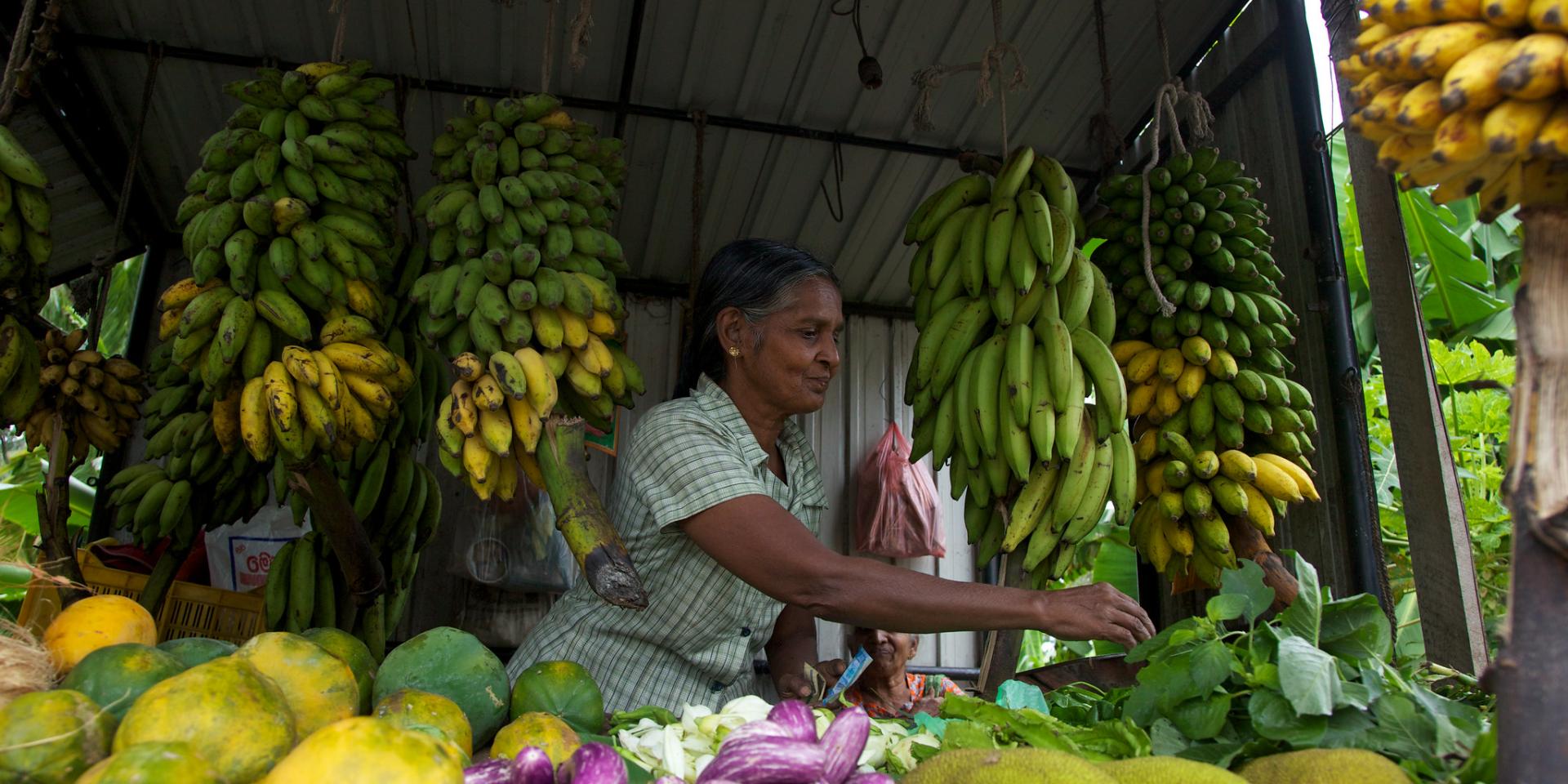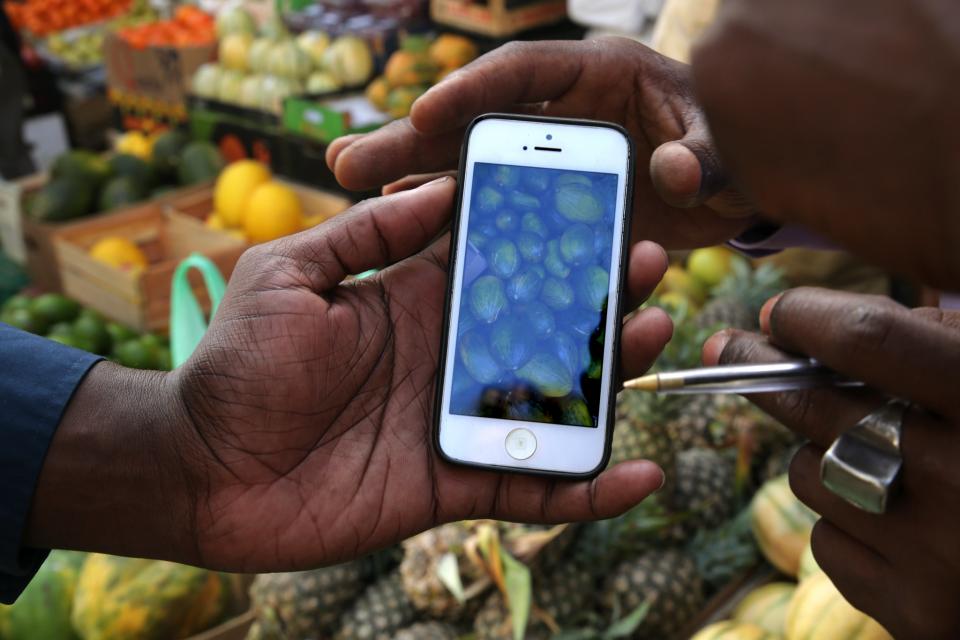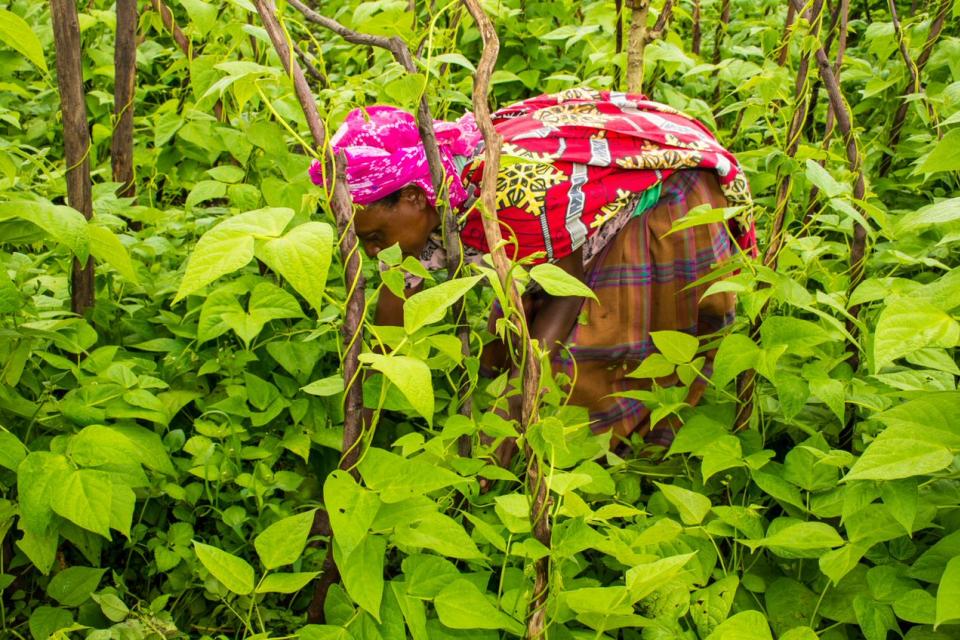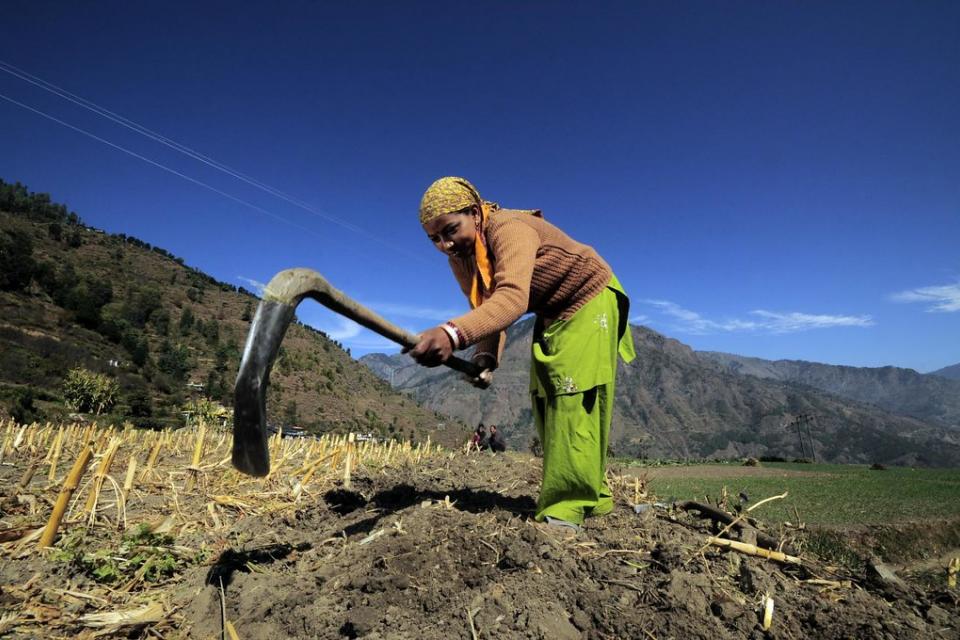The 3 Es of fostering equitable markets: supporting women’s entrepreneurship, employment and economic empowerment
 Photo:Hamish John Appleby / IWMI
Photo:Hamish John Appleby / IWMI
A lively session within the ‘Fostering equitable market systems’ theme during the ‘From research to impact: Towards just and resilient agri-food systems’ conference examined inclusion in value chains and markets from production to consumption. Presenters overall emphasized how important it is to give reliable and regular support for women’s training and capacity building, to nurture women-led agribusinesses and therefore women–women networks, and to improve methodologies and inclusive topics for better insights.
The 2023 international research conference ‘From research to impact: Towards just and resilient agri-food systems’ hosted by the CGIAR GENDER Impact Platform and the Indian Council of Agricultural Research (ICAR) took place in October 2023. In this series of blog posts, the leads of the event’s six themes reflect on key takeaways from the presentations and discussions that took place under each theme. Here Rahma Adam and Rufaro Madakadze (representing Sabdiyo Dido, who was Rahma Adam's co-lead) explore Theme 4: Fostering equitable market systems
Within this theme, a session was held about ‘Supporting women’s entrepreneurship, employment and economic empowerment in agri-food systems.’ Wide-ranging, it touched on inclusion in value chains and markets—spanning the phases linking production to consumption.
Session presentations covered opportunities for women’s empowerment in Tanzania’s cashew-nut value chain (Aika Aku, Sokoine University of Agriculture, Morogoro, Tanzania); unleashing the potential of women–women networks (Ranjitha Puskur, International Rice Research Institute); and opportunities for women’s empowerment in agricultural value chains between helping, employing and owning (Manuel Francisco Moreno Bustamante, Alliance of Bioversity International and the International Center for Tropical Agriculture).
Benefits of involving women in value chains go beyond income
The Tanzania presentation examined the role of women in the cashew value chain relating to their opportunities and constraints. It also assessed the effectiveness of the government’s Small Industries Development Organization (SIDO) in facilitating those opportunities and relieving constraints for women.
“Women's involvement in the cashew-nut value chain is not only about income; it’s about challenging gender norms and fostering women’s leadership and decision-making,” said Aku.
Despite women being deeply involved in production, processing and marketing for the domestic market, empowerment opportunities in production are limited. Women have much more control in small-scale processing, but other constraints must be addressed to enable women’s cashew-nut processing groups to take full advantage of the improved equipment—such as access to finance, hampered by low collateral and lack of alternative collateral; and weak contract-enforcement mechanisms. Researchers also recommended including young men in SIDO processing support.
Honduras results turn common empowerment assumption on its head
A Honduras study examined various indicators of women’s empowerment between the production and processing nodes of cashew-nut and dairy value chains to better understand if and how women’s participation in value chains is related to their empowerment.
Results suggested that levels of empowerment are not the same between the value chains, and across different nodes—women in the processing nodes of the value chains are less empowered than those in production nodes. This upends the common assumption that women’s empowerment is higher in processing due to more employment opportunities.
Further analysis revealed women in processing have a higher employment-associated time burden, leading to a lower empowerment score—leading researchers to conclude that the biggest factor related to disempowerment is workload hampering participation in group membership.
Bustamante recommended, therefore, that “development projects need to focus on supporting women in ways that can reduce their workloads and increase their opportunities for group membership, and provide other avenues for building family wealth.”
Chair Adam reiterated the need for women and men to see the benefits of women helping the household make good decisions: “This is where gender-transformative approaches and social and behavior change communication come into play. They promote awareness, challenge harmful gender norms, and generally work to create an inclusive and empowering environment that uplifts women and fosters their holistic well-being.”
Following grantees’ activities for insights into potential for women in African agribusinesses
Across Africa, AGRA’s VALUE4HER Initiative works on understanding how to best improve the livelihoods of women in small- and medium-sized agricultural enterprises (SMEs). VALUE4HER catalyzes women-to-women supply chains to create learning and market networks among women-owned and women-led SMEs.
After giving grants to 20 SMEs to engage with 20 nano- and micro-entrepreneurs, Puskur and colleagues examined the business activities by the women in the program. Their insights about the potential of women in African agribusinesses revealed challenges such as:
- barriers in market information
- constrained access to formal financial sources
- lack of own land to grow products
- dearth of non-land-based value-addition opportunities
- limited access to digital devices, connectivity, and training
- lack of access to risk-management products
- fewer networks and groups, role models and peers
- less access to government programs, schemes and resources
- gender norms that affect time use for women
“There is a need to engage young women in the agribusiness sector, and also the need to see the potential for women to thrive in livestock and fisheries sector as well, besides crops,” said Puskur.
“Moreover, training women in financial, marketing, production, advocacy for women’s business, digitization and leadership skills is very crucial for them to achieve their full potential.”
Connecting women leads to innovative and resilient agribusinesses
The session’s studies all underscore the importance of continuous support in training and capacity building to women, to empower them and to enable them to remain in agribusiness. Moreover, nurturing women-led agribusinesses is critical because, in most cases, the potential of women–women networks facilitate peer-to-peer learning and mentorship among women in agri-food systems, which can lead to more innovative and resilient businesses.
Researchers also highlighted new research directions such as developing better methodologies for qualitative studies, studying women’s time burden, and including cash crops when studying women’s participation in agriculture activities and investments.


